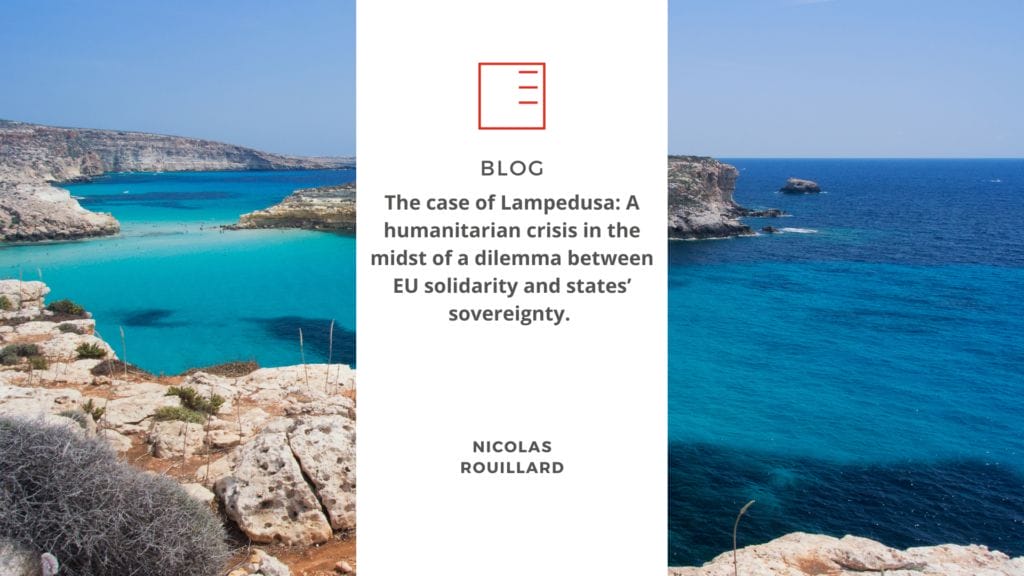
BLOG | The case of Lampedusa: A humanitarian crisis in the midst of a dilemma between EU solidarity and states’ sovereignty
More info 4. 12. 2023
4. 12. 2023
In September 2023, Lampedusa, a small Italian island, faced an unprecedented surge in arrivals, sparking a heated debate within the EU. With conflicting perspectives from leaders like Ursula Von der Leyen, the focus has shifted from humanitarian aid to security concerns. This blog written by Nicolas Rouillard explores the complexities of the crisis, the divergent opinions, and the critical decisions ahead that could reshape Europe's approach to migration.
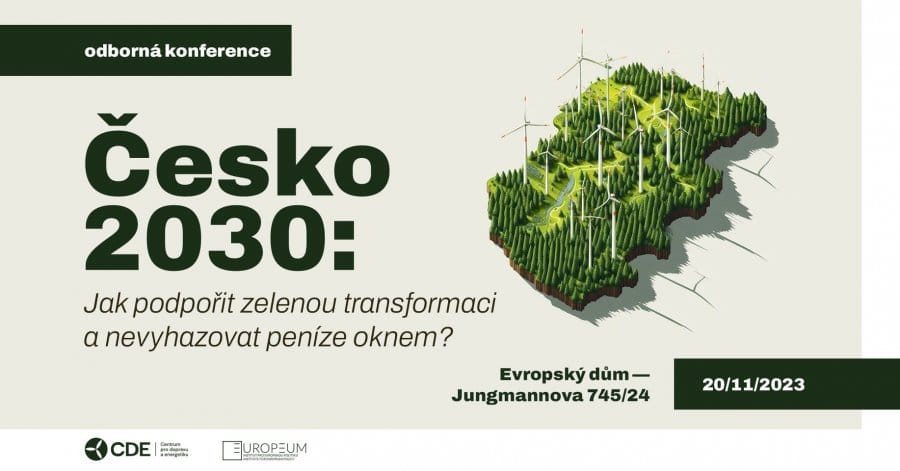
Czech Republic 2030: How to support green transformation and not throw money out the window?
More info 30. 11. 2023
30. 11. 2023
On 20 November 2023, the Centre for Transport and Energy, in cooperation with EUROPEUM Institute for European Policy, organised a conference entitled Czech Republic 2030: how to support green transformation and not throw money out the window? The conference was opened with an introduction by Josef Schwarz from the Representation of the European Commission in the Czech Republic.
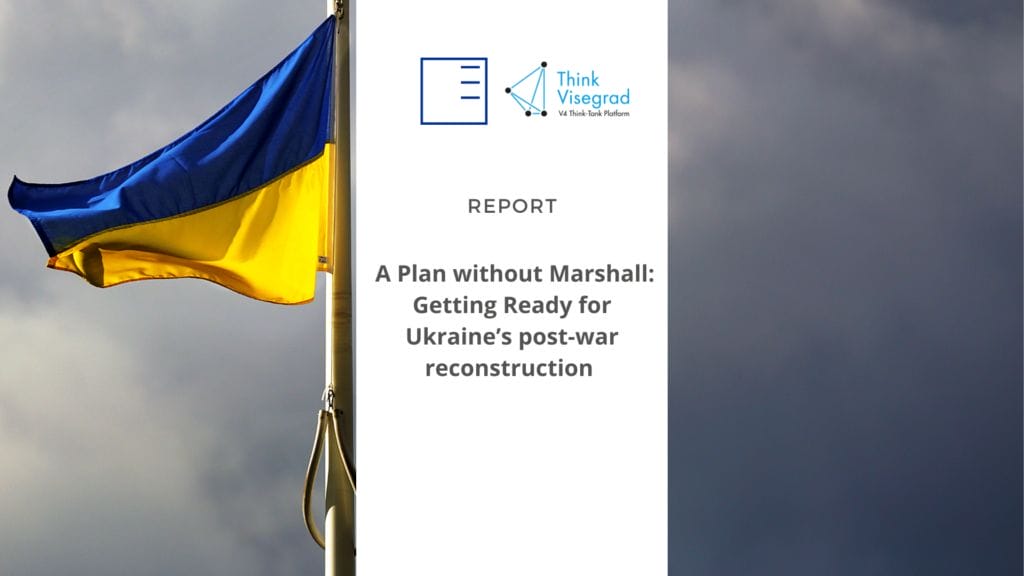
Report: A Plan without Marshall: Getting Ready for Ukraine’s post-war reconstruction
More info 7. 11. 2023
7. 11. 2023
On the 7th November, EUROPEUM Institute for European Policy under Think Visegrad platform organized an expert meeting focusing on current developments regarding the reconstruction of Ukraine, both on the side of the EU through its ambitious Ukraine Facility and through the lenses of international support for Ukraine's recovery and reconstruction.
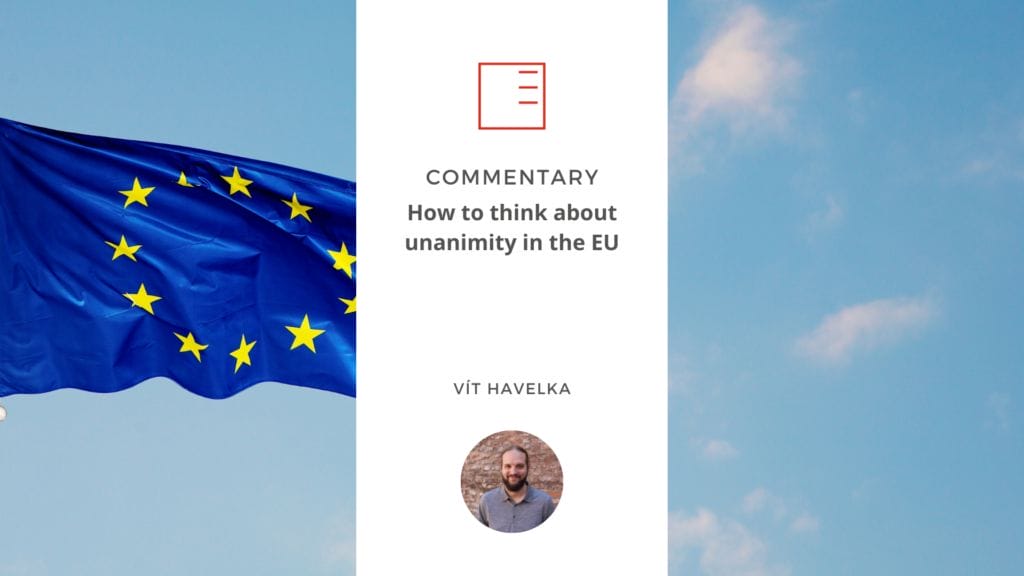
Commentary | how to think about unanimity in the EU
More info 31. 10. 2023
31. 10. 2023
With the opening of accession talks with Ukraine and Moldova, the debate in the European Union on the transition from unanimity to qualified majority voting in some areas has been reignited. Although this is not a new debate, it is worth looking at the current situation, describing the problems caused by unanimity and proposing concrete solutions. For more, see Vit Havelka's commentary.
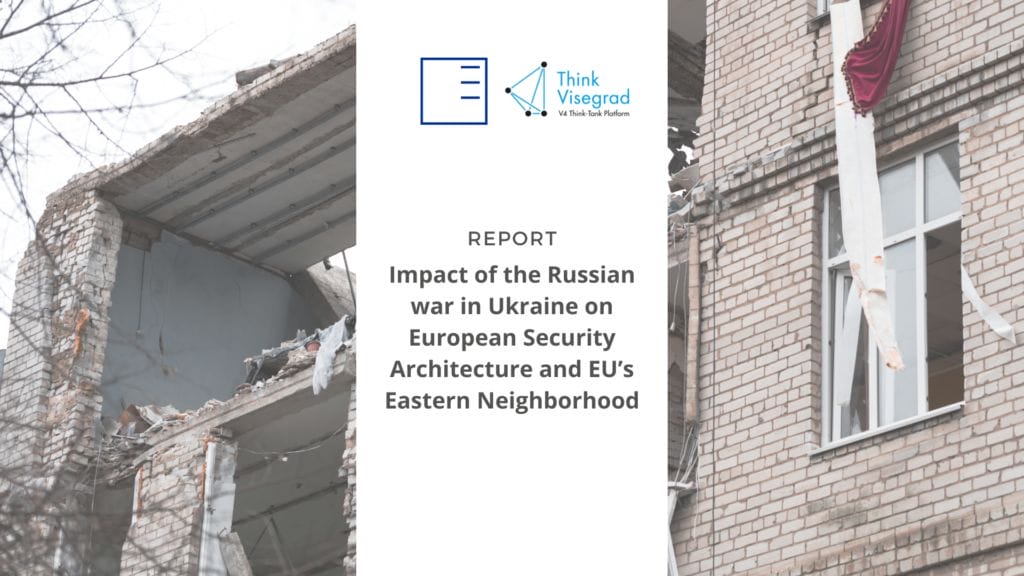
Report: Impact of the Russian war in Ukraine on European Security Architecture and EU’s Eastern Neighborhood
More info 25. 10. 2023
25. 10. 2023
On October 25th, EUROPEUM’s Brussels Office under the representation of Think Visegrad Brussels and in cooperation with Fondation Robert Schuman organized an expert discussion titled “Impact of the Russian War in Ukraine on European Security Architecture and EU’s Eastern Neighborhood”. This discussion, which was held under the Chatham House rules, gathered 19 experts from think-tanks, EU institutions, NATO and diplomats from EU Member states.

Report: EVs, subsidies and the future of CEE industry
More info 24. 10. 2023
24. 10. 2023
On October 24, EUROPEUM’s Brussels Office under the representation of Think Visegrad Brussels and in cooperation with OSW organized an expert discussion titled “EVs, subsidies and the future of CEE Industry”. This discussion gathered 16 experts from think-tanks, academia, and experts from the European institutions. This discussion was held under the Chatham House rules.
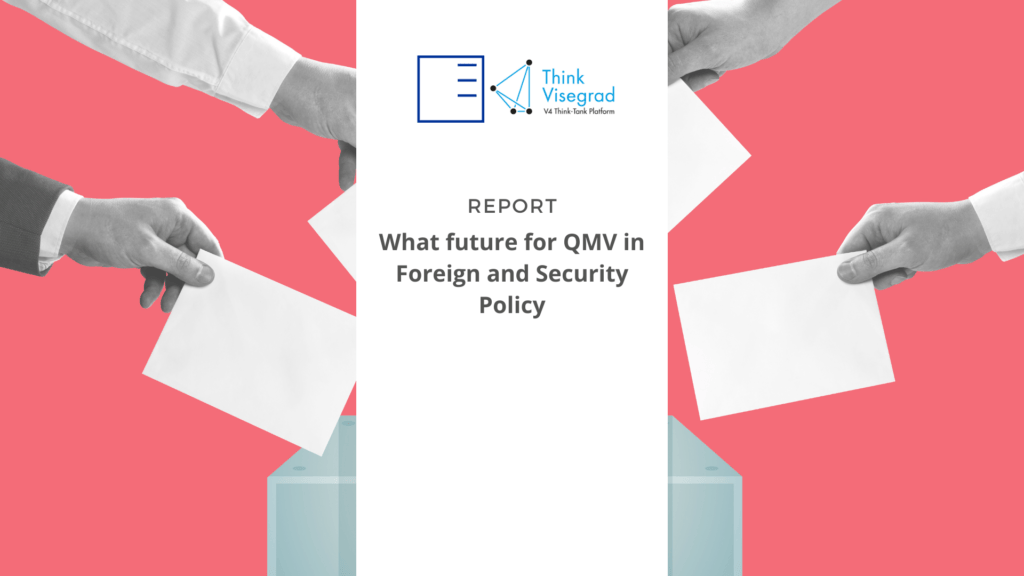
REPORT | What future for QMV in Foreign and Security Policy?
More info 11. 10. 2023
11. 10. 2023
The debate focused on the possible move to qualified majority voting in the EU's Foreign and Security Policy. The participants in the debate discussed the possible negative and positive aspects of the decision. The debate covered topics such as the fear of over-voting as a possible aspect of division within the Union or the ineffectiveness of the current consensus approach.
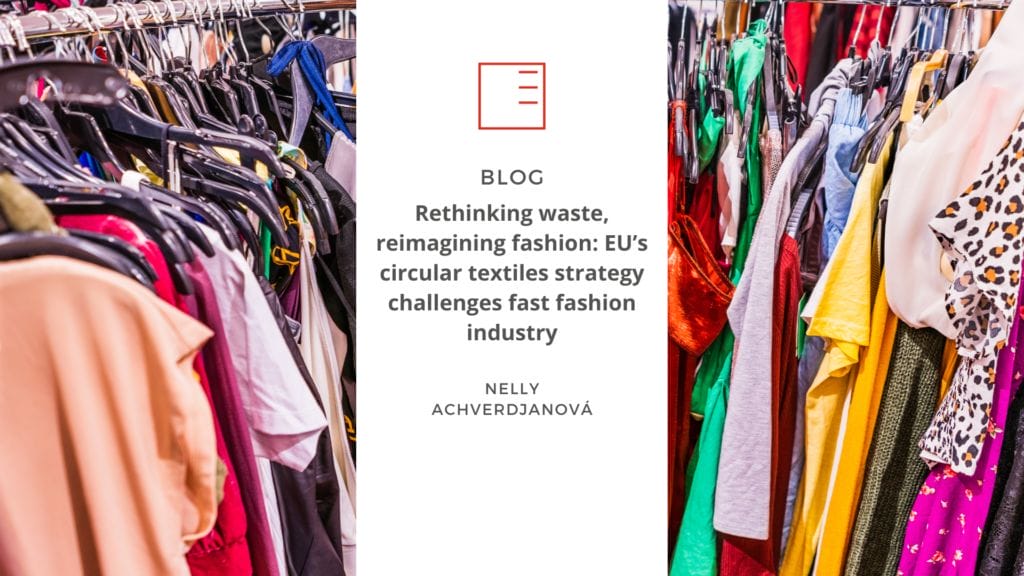
BLOG | Rethinking waste, reimagining fashion: EU’s circular textiles strategy challenges fast fashion industry
More info 4. 10. 2023
4. 10. 2023
A number of industries, including textiles, are now facing an increasing emphasis on sustainability. It is characterised mainly by one-off trends, which are linked to the frantic pace of the entire textile industry. The EU's Circular Textiles Strategy can be seen as a hope to address the situation. You can find out more about it in the blog written by our intern Nelly Achverdjanová.
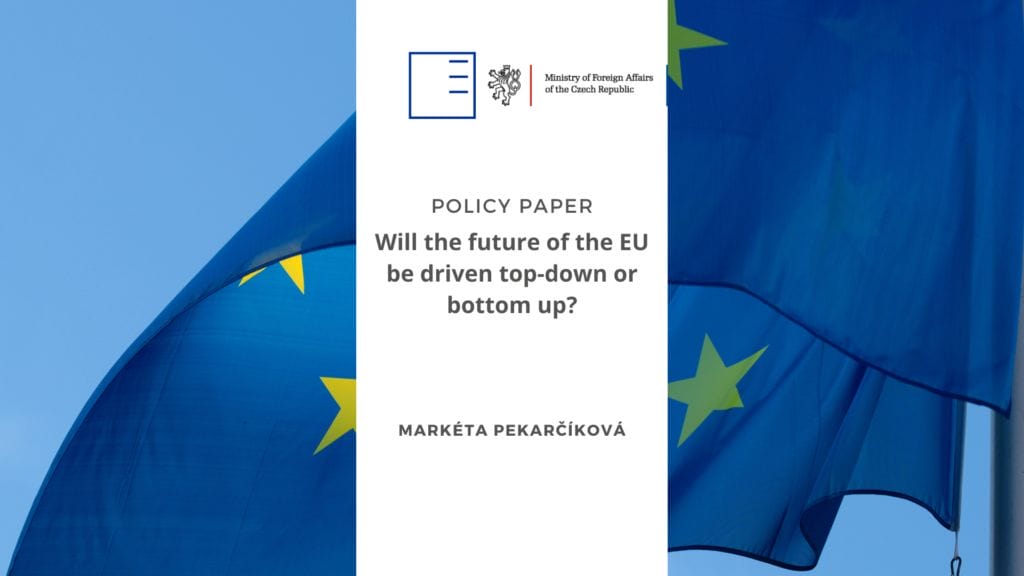
Policy Paper | Will the future of the EU be driven top-down or bottom up?
More info 25. 9. 2023
25. 9. 2023
Read the article by Markéta Pekarčíková, who has written a policy paper on possible approaches and proposals that the European Union could follow or at least be inspired by. It provides a theoretical perspective on the future of the European Union as perceived by the previous European Commission under the leadership of Jean-Claude Juncker. The EU27 was to decide its future by 2025.
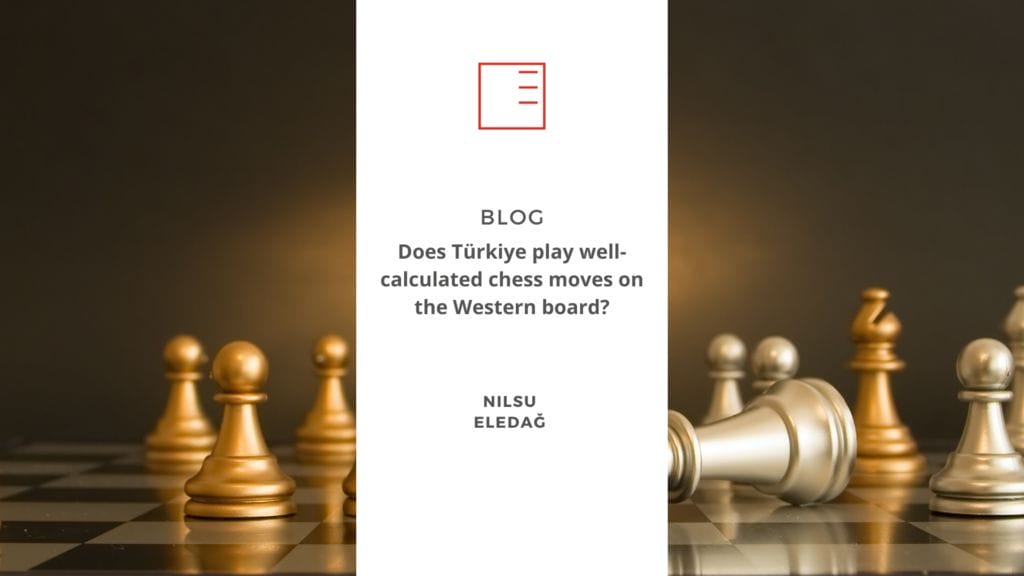
BLOG | Does Türkiye play well-calculated chess moves on the Western board?
More info 30. 8. 2023
30. 8. 2023
Nilsu Eledağ has written a blog about Türkiye's role in determining Sweden's NATO membership and concerns about terrorism and anti-Islamist movements. Türkiye took a slight turn in foreign policy and now plays a closer game with NATO allies. There could be two reasons behind why Türkiye chose to shift towards the West. Find out more in Eledağs blog.
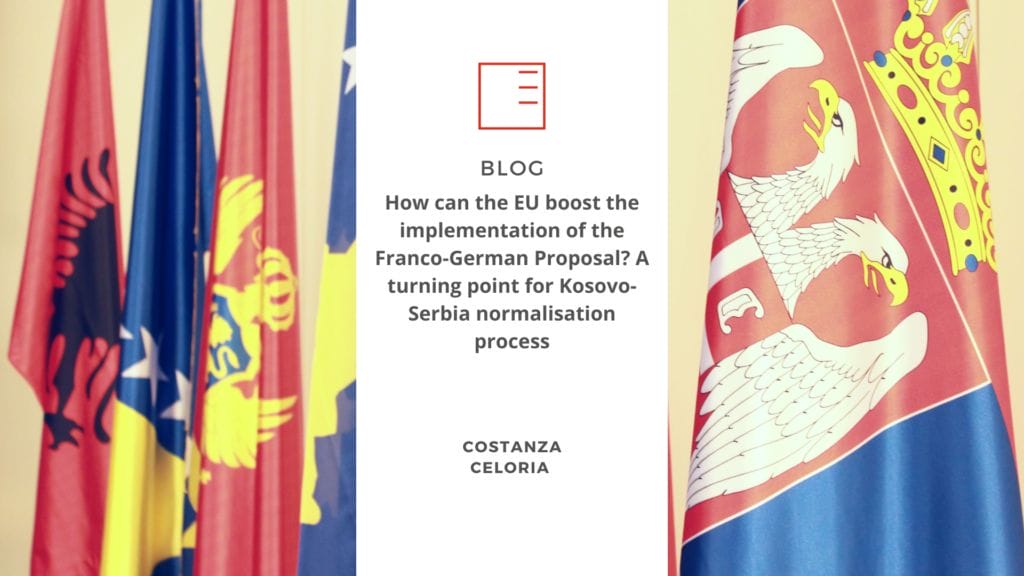
BLOG | How can the EU boost the implementation of the Franco-German Proposal? A turning point for Kosovo-Serbia normalisation process
More info 29. 8. 2023
29. 8. 2023
Serbia's refusal to recognise Kosovo, which unilaterally declared independence in 2008, is at the root of many problems within the region of Western Balkan. It hinders both countries’ EU membership paths, creates destabilisation in the Balkans, as visible in the recent unrest in northern Kosovo, and hinders regional economic cooperation. Writes our intern from our Brussel's office Costanza Celoria.
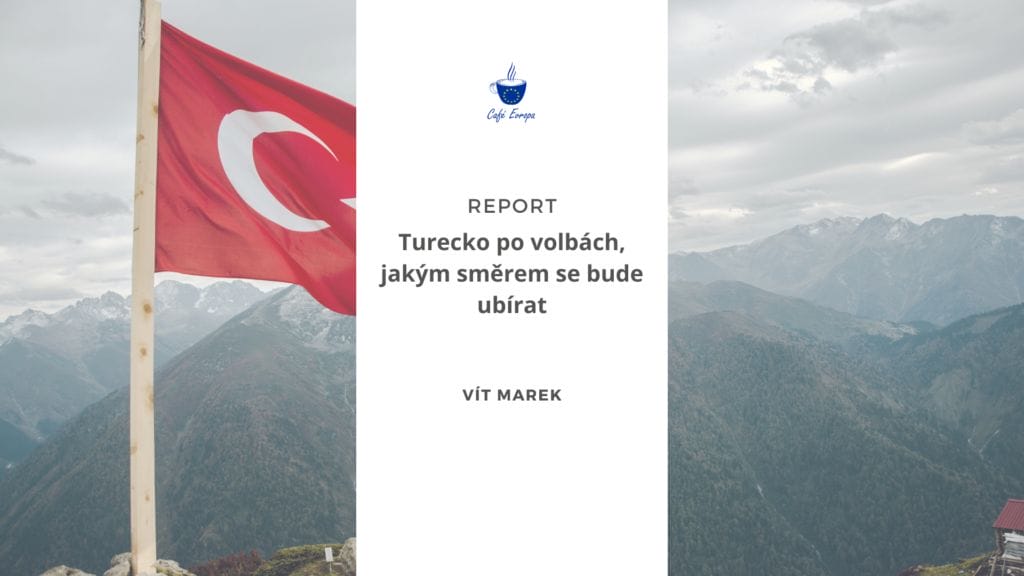
Report | Café Evropa: Turkey after the elections, what direction it will take
More info 21. 8. 2023
21. 8. 2023
On Wednesday, June 7, a debate took place as part of the Café Evropa cycle, on the topic: "Turkey after the elections, which direction will it go?". The invitation to the debate was accepted by Lucia Najšlová, political scientist and author of the book Turkey and the EU: The Politics of Belonging, as well as by Deník N journalist Dominika Píhová and Břetislav Tureček, head of the Center for Middle East Studies at the Metropolitan University in Prague. The debate was moderated by Žiga Faktor, the head of the Brussels office of the EUROPEUM Institute for European Policy.